At the elementary school we were thought that Governance is the process of making and enforcing decisions within an organization or society. It is the process of interactions through the laws, social norms, power or language as structured in communication of an organized society over a social system.
Though there is no universally accepted definition of Governance when used in political literature. We owe the concept to Plato who was the first to use the Greek word kubernáo, meaning to steer a ship, metaphorically, in the context of steering Men.
Over the years, the word has been used generically and the concept has evolved to encompass relationships between stakeholders in a variety of set ups. In the present highly dynamic environment, politically, socially, economically, and culturally, the term means different things in different contexts and the use of an adjective with the word governance has become almost mandatory for it to make any sense at all.
As the ground-clearing progresses, a number of attempts have been made to bring precision and sense to the use of the term.
The United Nations Development Programme (UNDP), in its 1997 policy paper, defined governance as “the exercise of economic, political and administrative authority to manage a country’s affairs at all levels. It comprises the mechanisms, processes and institutions through which citizens and groups articulate their interests, exercise their legal rights, meet their obligations and mediate their differences”.
This definition was endorsed by the Secretary-General’s inter-agency sub-task force to promote integrated responses to United Nations conferences and summits.
There are however, major concepts consistent in these definitions. Concepts such as, formulation of polices and implementation of same.
Nigeria being a member state of the United Nations since 7th October 1960, understands the importance in having a team that can discharge this task of governance, efficiently and effectively at the Federal level.
Politics they say ends after the election, while governance starts afterwards. In the bid to form the government at all levels, the elected officials including the President and State Governors have the responsibility to appoint those they feel are competent enough to contribute towards the success of their administration.
Nigeria’s existence hinged on the Executive, Legislative and Judicial arms, means the dysfunctional state of any could spell doom for the other two. Just like they say ” when the nose cries, the eyes cry too, because they are connected “.
The Commander in Chief of the Armed Forces and President, Bola Ahmed Tinubu, has been in the spotlight for several reasons before and after his emergence as the winner of the 2023 Presidential election. The recent talking point being who his ministers would be.
The Nigerian Constitution already prescribes that all the 36 states must be represented, and if you add the FCT as is being canvassed, that gives us a total of 37 Ministers.
The 1999 Constitution vests the President with Executive powers under Section 5(1)(a) and in other parts of that basic document to hire and also fire, if need be, persons who would assist him in the discharge of his functions as President, Commander in Chief.
The Nigerian President is in fact in a position to dispense as many as 5,000 patronages, the powers vested in his office and person are that enormous, and expansive.
But of all appointments, the composition of the Federal Executive Council of the Federation is critical as seen in Sections 144(5) and 147 of the 1999 Constitution. In Section 147 (3), the Constitution says expressly that Ministerial appointments “shall be in conformity with the provisions of section 14(3) of this Constitution: Provided that in giving effect to the provisions aforesaid the President shall appoint at least one Minister from each state, who shall be an indigene of such state”.
Just like President Tinubu, another prominent name keeps popping up on the front pages of National and State owned tabloids and even the international media can’t seem to resist talking about the Former Governor of Rivers State Chief Bar. Nyesom Ezenwo Wike.
The talk centres around his likely nomination to serve as a Minister in the Tinubu’s administration. Naysayers have come up with several reasons why it should not be Wike.
Some persons have pointed to his membership of the Peoples Democratic Party, PDP, as a criteria for his disqualification, others are afraid and therefore of the view that he is too strong willed and dogged to serve as Minster because that would further deplete their political currency and relevance.
While we have the right to our views, should such views be made based on parochial sentiments or should they be critical and unbiased?
The former Governor has been in politics long enough to know that people’s views about his personality does not matter but what matters is his achievements whilst in office.
Mindful of the above, Wike, has always used his Midas touch to transform whatever is put under his care.
Like the tale of the servants whose masters gave pennies to, Wike has always being that wise servant who did not bury the talent for fear of enriching his master, but utilised the talent for the betterment of all and sundry.
As Council chairman of Obio/Akpo Local Government Area, I can recall vividly his achievements which transformed the fortunes of the LGA to place it on the same level as Port Harcourt City Local Government Area, which had enjoyed the status of being the most populated, attractive, developed and wealthy LGA before Wike’s reign as Council Chairman.
His achievements as Minister of State for Education, during Goodluck Jonathan’s administration can not be forgotten in a hurry, while his historic transformation of Rivers State is a feat that will be forever remembered.
In 1999, Nigeria had members of PDP predominantly holding key political positions at the National and State levels, despite having other political parties in the Country.
The story changed in 2003 and currently, we have states where most Houses of Assembly have members from various political parties. The National Assembly is not exempted from this, as members of APC, PDP, Labour Party etc, have registered their presence.
Tinubu, as former Governor of the very cosmopolitan Lagos State knows that though tribe and tongue may differ, in brotherhood we stand.
The President should remember that competence and courage should be the yardstick for any consideration or returns for any I owe you (IOUs) when the Ministerial nominations are made, because Nigeria is in dire need of a transformation.
Even those who are Nyesom Wike’s sworn enemies can attest to the fact that he (Wike) possess both qualities and also qualify to tap from the IOUs.
Gloria Boma Harry writes from Port Harcourt, the Rivers State Capital.




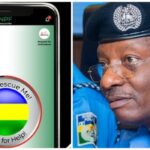
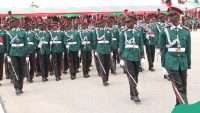
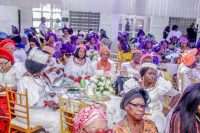
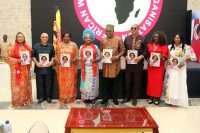
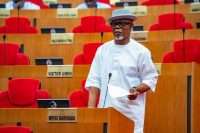
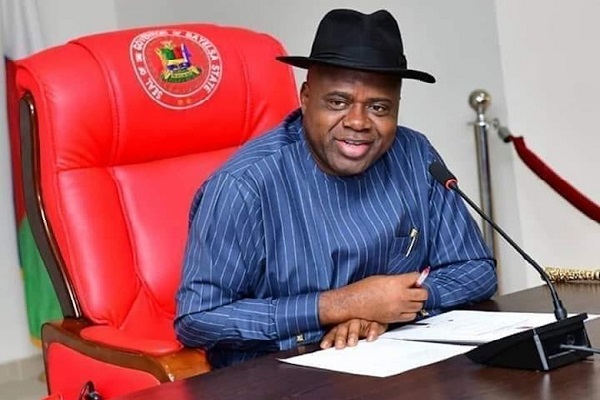
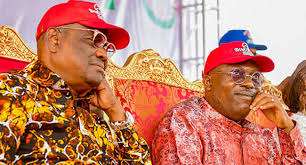


Leave a comment